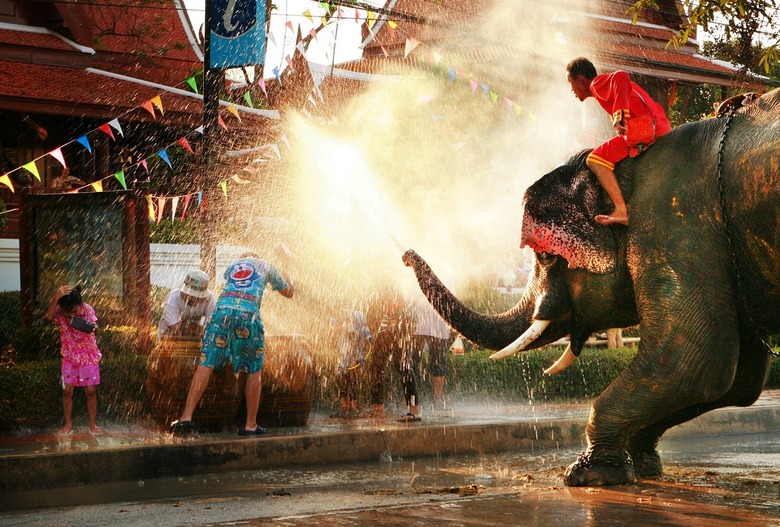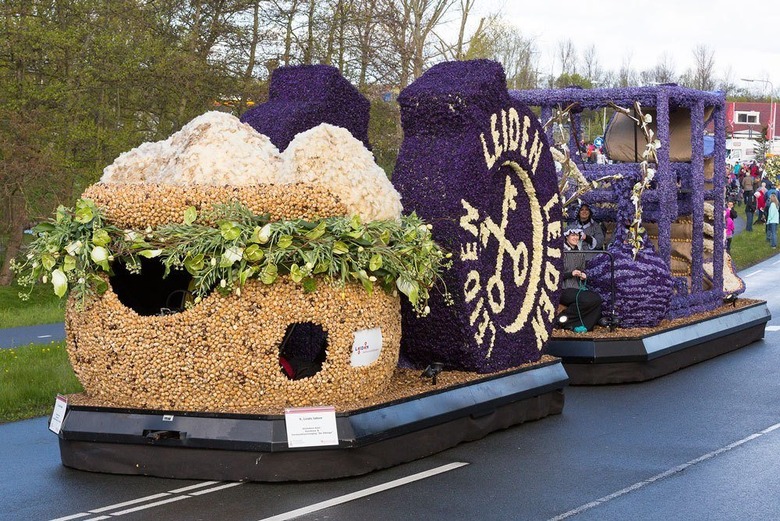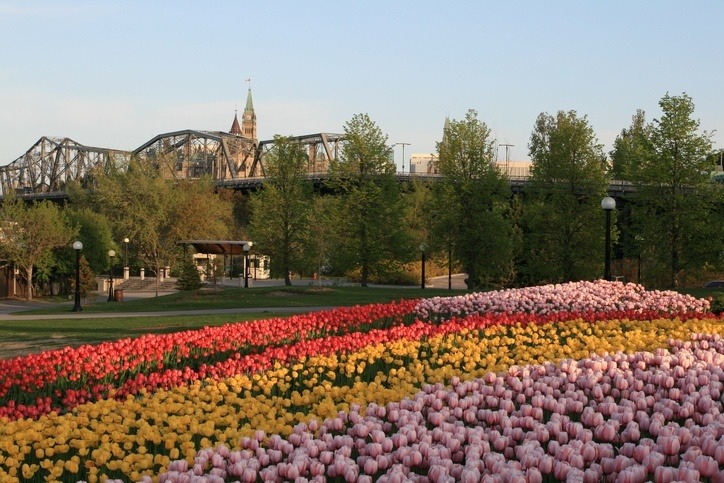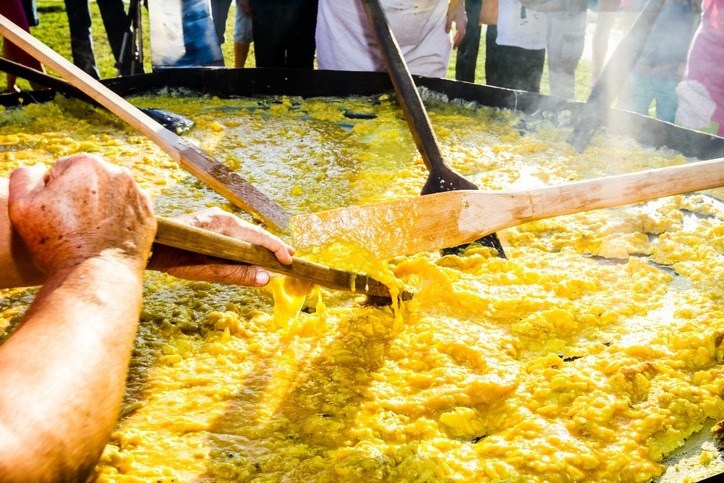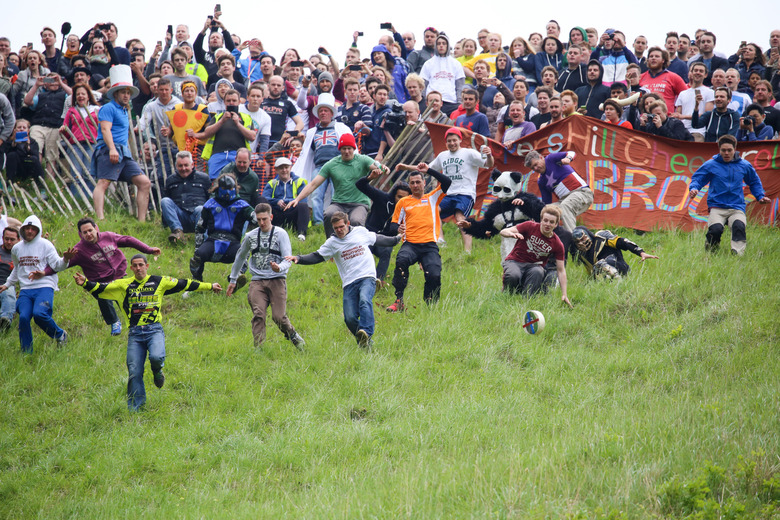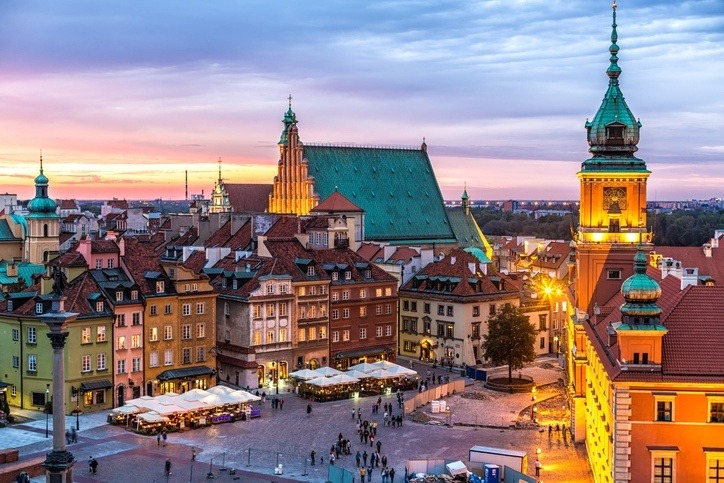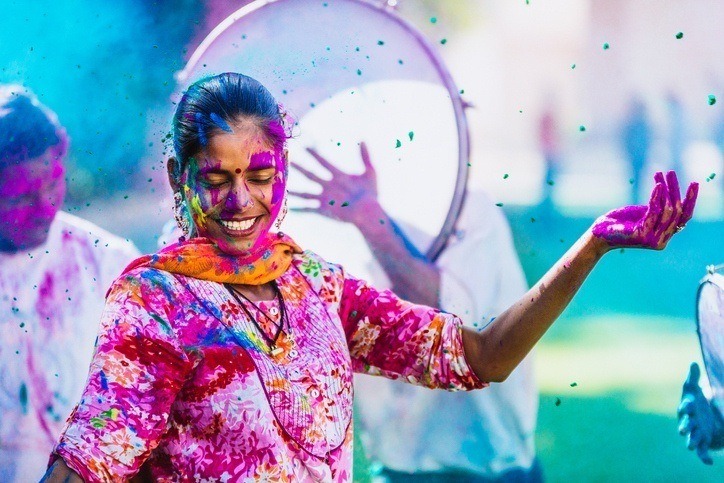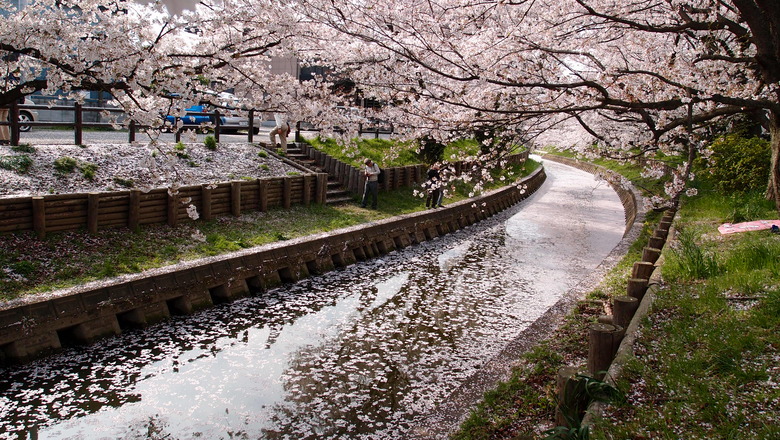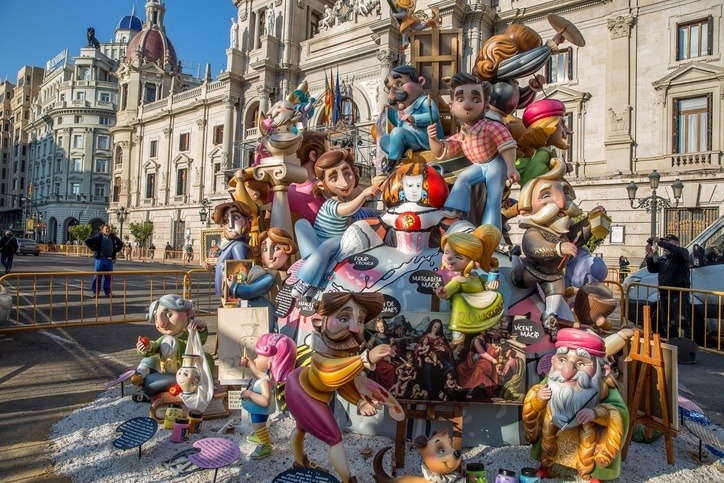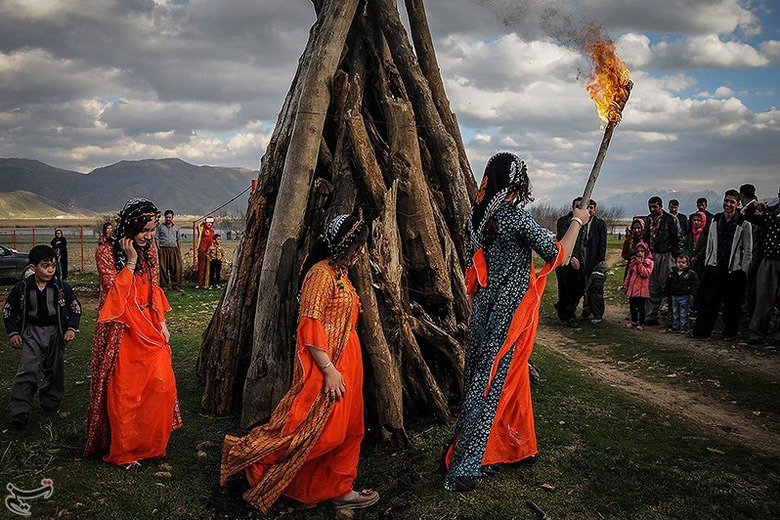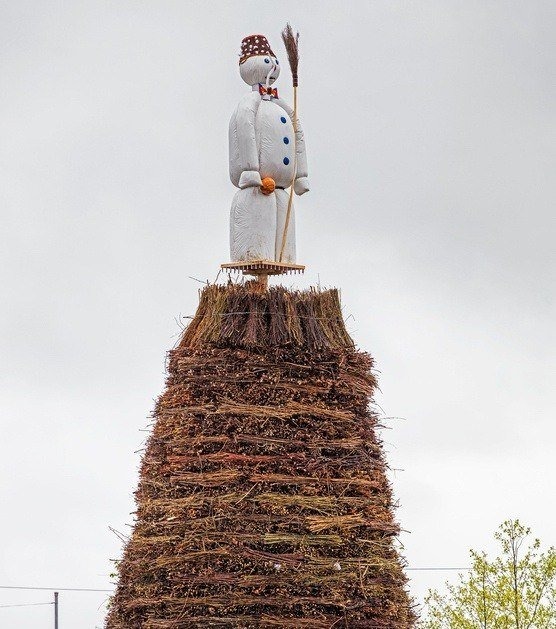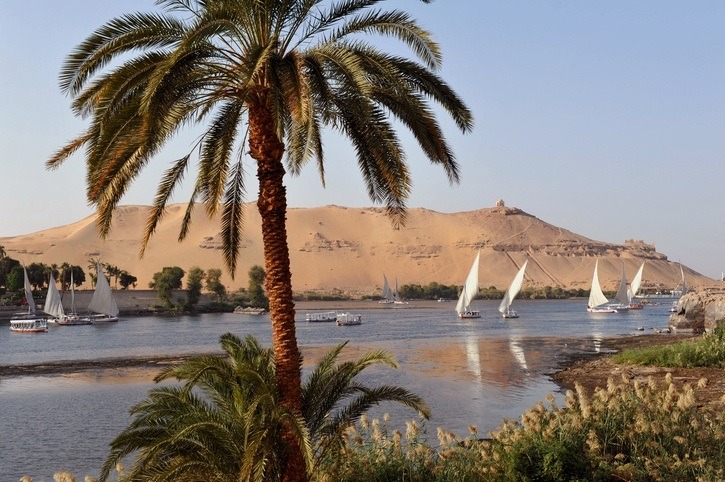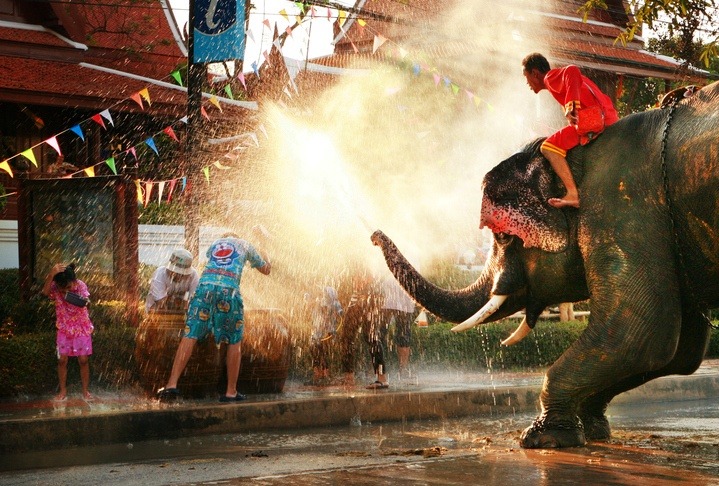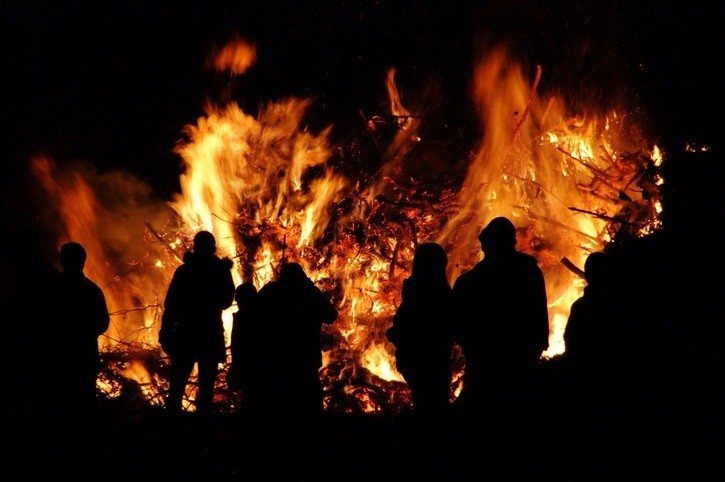Must-Visit Spring Festivals Around The World Gallery
There's a festival out there for just about any foodstuff, occasion, or tradition you can think of, so it should come as no surprise that there are quite a few fêtes celebrating the arrival of spring. Spring, of course, heralds rebirth and renewal. With the vernal equinox come longer days and warmer weather; leaves appear on trees and crops dormant for the winter begin to grow.
Some springtime observances might seem a bit dark to us, such as Walpurgis Night in Germany, where people dress up as witches and devils not unlike the American Halloween, or the Drowning of Marzanna in Poland, where effigies are burned and thrown into lakes — but these are expressions of the demise of winter and the promise of good things to come. Others are built around delicious food, like the Festival of Scrambled Eggs in Bosnia, or natural beauty, like the many cherry blossom festivals in Japan. So whether you're looking for a place to spend your spring break or simply looking to take a break, consider celebrating the arrival of spring yourself at these must-visit spring festivals around the world.
Bloemencorso Bollenstreek
In the end of April, Bloemencorso Bollenstreek, the largest flower parade in the world, takes place in the Netherlands. The parade winds through eight cities, from Noordwijk to Haarlem, with over 50 flower floats and specialty vehicles making their way along the route, with a marching band playing alongside. If you don't make it for the festival, consider taking a Holland cruise during tulip season.
Canadian Tulip Festival
Ottawa hosts the world's largest tulip festival in May, with over a million of the showy flowers blooming throughout the National Capital Region. The festival celebrates the strong and historic relationship between Canada and the Netherlands, not only with all those beautiful tulips but also with music and fireworks.
Čimburijada (Festival of Scrambled Eggs)
The first day of spring (March 20 this year) in Zenica, Bosnia, is celebrated with this unusual tribute to, yes, scrambled eggs. The day begins with a large breakfast of eggs, which of course are symbolic of new life. The rest of the day is spent partying, barbecuing, and jumping into the river — signaling the beginning of the swimming season.
Cooper’s Hill Cheese-Rolling and Wake
Chase a nine-pound wheel of Double Gloucester cheese down Cooper's Hill to win the Cooper Hill's Cheese-Rolling and Wake competition in Gloucester. The event takes place yearly on the Spring Bank Holiday, which is the last Monday in May, and the first person to run past the finish line after the cheese wins the entire wheel. No one is sure how the festival started, but two popular explanations are that it started from a requirement to maintaining grazing rights or that the competition comes from the pagan custom of rolling bundles of burning brushwood down the hill to represent the coming of the New Year after winter. Since 2013, however, there has been no management of the event due to safety concerns, so if you go, it's at your own risk.
Drowning of Marzanna
Drowning of Marzanna is an ancient Slavic tradition celebrated in Poland, ending winter and welcoming spring. Effigies of the goddess Marzanna are created — young children make dolls in all sizes and adults construct straw effigies wrapped in linen and bedecked with beads — and then burned and thrown into the nearby lakes and rivers while traditional songs are sung. Although it may sound a bit morbid, the event has deep historical and cultural roots, and is considered a spectacle well worth seeing.
Holi
The Hindu festival of Holi is the celebration of spring's arrival. The festival is broken down into two events. The first is Holika Dahan, the burning of evil spirits and the devil Holika by lighting bonfires. The second event occurs the day after and is the more widely known Rangwali Holi, where friends and family throw colorful powders as musicians roam the streets and fruit-filled samosas and other snacks are eaten. Celebrating Holi in India might be a bit of a travel cliché, but it's one that's definitely worth it.
Japanese Cherry Blossoms
Japan loves its cherry blossoms and in spring, you'll find not one but many cherry blossom festivals, as long as the trees flower, between March and May. Celebrating can be done by eating and drinking — always with family and friends — anywhere there's a view of the blossoms. Often, this becomes more like a picnic where people find places to sit and eat at parks and gardens around the country. Looking at the cherry blossoms is known in Japanese as hanami ("flower viewing") — unless it's at night, when it becomes yozakura ("night cherry").
Las Fallas
Ending winter in Spain is Valencia's Las Fallas festival, where monumental papier mâché sculptures are set ablaze. The event lasts from March 15 to 19 with fireworks, parades, and various ceremonies leading up to the main event of La Cremà (the burning) on the last night, when all the sculptures are set on fire at night, burning until the early hours of the morning.
Nowruz
The Iranian New Year, known as Nowruz (literally "new day"), is both a holy day for Zoroastrians and a secular holiday for people of many different faiths throughout Western and Central Asia, as well as the Caucasus, Balkans, and Black Sea Basin. For over 3,000 years, celebrants have marked the beginning of spring on the vernal equinox, which is also the first day of the first month of the Iranian calendar. People prepare with an intense spring cleaning of their homes and buy new clothes for the new year, as well as fresh flowers. Specific traditions vary by region and country, but in Iran, the festivities typically last 13 days, culminating in an outdoor picnic festival called Sizdebedar.
Sechseläuten
Sechseläuten occurs on the first Monday of the spring equinox, celebrating longer days and warmer weather in Zürich. A snowman figure with explosives inside, known as the Böögg, is a winter effigy that's burned after a parade by members of the city's historic guilds takes place.
Sham el-Nessim (Feast of the Nile)
Songkran Water Festival
To celebrate Thai New Year and to welcome spring, Thailand enjoys the Songkran Water Festival from April 13 through April 15 of each year. The festival of Songkran is observed with a week-long water fight, during which nobody on the streets is safe from getting soaked. This fun tradition is related to the idea of seasonal renewal, when everyone cleans his or her home and cleanses his or her spirit in preparation for the coming year.
Walpurgis Night
Walpurgis Night, April 30, marks the beginning of spring in several countries — including Germany, Czech Republic, the Netherlands, and other parts of northern Europe. It descends from an old pagan festival meant to banish evil spirits on the eve of May Day. The night is spent dancing around bonfires and maypoles, and some people dress in costume as witches or devils. For more interesting festivals around the globe, check out our list of the world's wackiest food festivals.
Travel Editor Syjil Ashraf and Bianca Bahamondes contributed to this article.
More from The Daily Meal:
50 Travel Clichés That Are Actually Worth Experiencing
Famous Places to Visit Before They Disappear
The Most Exciting Travel Destinations
